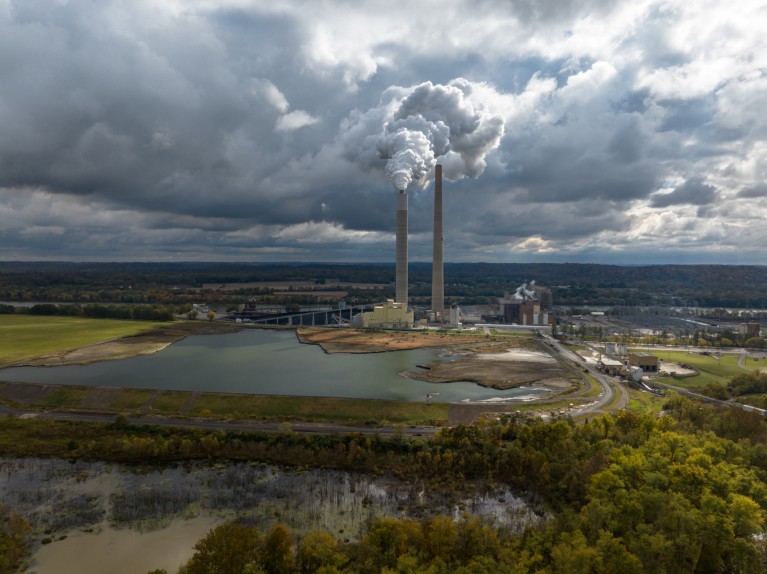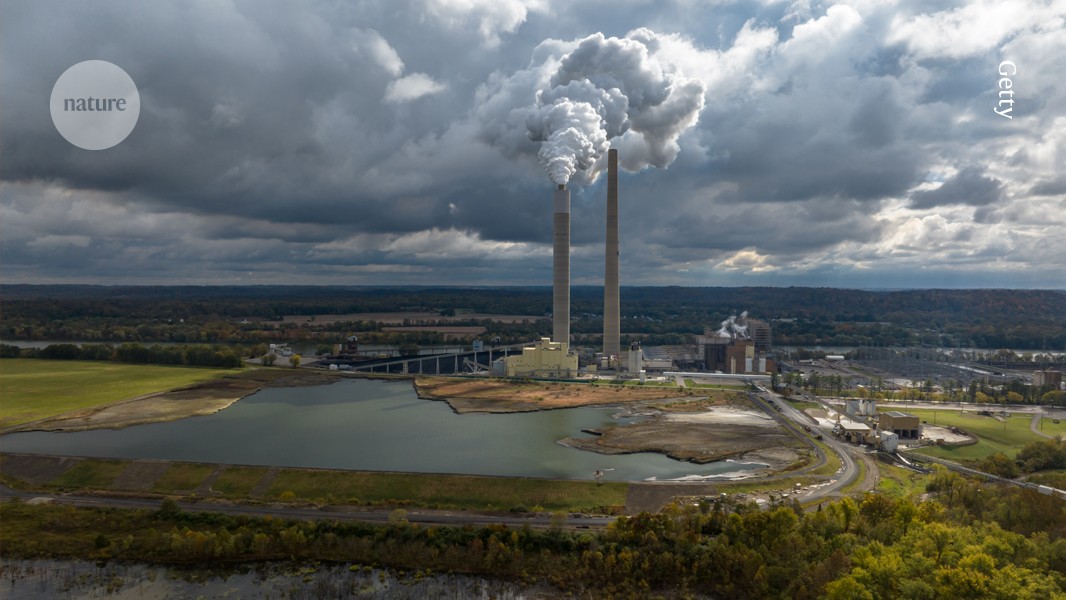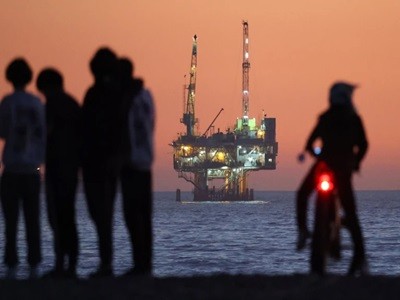
A US coal-fired power plant. Such plants tend to emit large amounts of greenhouse gases.Credit: Getty
Faced with a lawsuit, the administration of US President Donald Trump has disbanded a panel of five well-known critics of climate science who issued a controversial draft report questioning the evidence underlying global warming. US energy secretary Chris Wright asserted that the group had accomplished its goal in publishing the first draft, which the Department of Energy (DoE) has declined to withdraw. Two of the panel’s members told Nature they plan to continue the work independently.
The dissolution of the panel could undermine the draft report as well as its potential use in regulatory decisions. In particular, the document serves as the scientific basis of the Trump administration’s efforts to repeal a landmark 2009 finding that greenhouse gases endanger public health and welfare. A repeal of the finding would prevent the US Environmental Protection Agency (EPA) from regulating greenhouse gases, now and potentially into the future.
“The optics are bad,” says Adam Orford, a legal scholar at Fordham University in New York City. “If you are going to base climate policy on something, shouldn’t it be a little bit more credible than a draft report from a committee that was disbanded?”
Contentious findings
The draft report, which was released in July, concluded that global warming is “less damaging economically than commonly believed”. Climate scientists say that it amplifies minor uncertainties about climate change and downplays the harms. It was written by a working group comprising five academic researchers who have a history of disagreeing with consensus opinions on climate science. Before the group was disbanded, the DoE had tasked it with responding to public comments on the draft and then producing a final version of the report.
Drill, baby drill? Trump policies will hurt climate ― but US green transition is underway
Wright’s decision to disband the group, first reported by Politico, arrives in the middle of a lawsuit by advocacy groups over how the climate panel was appointed and managed. The lawsuit hinges on whether the DoE followed mandates laid out under the 1972 Federal Advisory Committee Act (FACA), which requires agencies to ensure that advisory panels represent a diversity of viewpoints. The suit argues that the DoE handpicked its panel to represent a specific viewpoint, which centres on opposition to mainstream climate science. The lawsuit also argues that the DoE violated other FACA requirements, including one requiring that such panels announce their meetings publicly.
The DoE has requested that the case be dismissed now that the working group has been disbanded, but advocacy groups are pushing for a formal ruling on the legality of the panel. A federal judge is scheduled to hear arguments on the case today.
The DoE did not immediately respond to allegations that it acted illegally in appointing and managing the climate panel. It also declined to specify whether it intends to issue a final report that includes responses to public comments.
The draft report achieved its purpose, “namely to catalyze broader discussion about the certainties and uncertainties of current climate science”, a DoE spokesperson said in a statement to Nature. “We will continue to engage in the debate in favor of a more science-based and less ideological conversation around climate science.”
Outside the mainstream
“The DoE report has turned into a true mess,” says Andrew Dessler, an atmospheric scientist at Texas A&M University in College Station, who helped to coordinate a 450-plus-page response from dozens of scientists in the United States and abroad.



